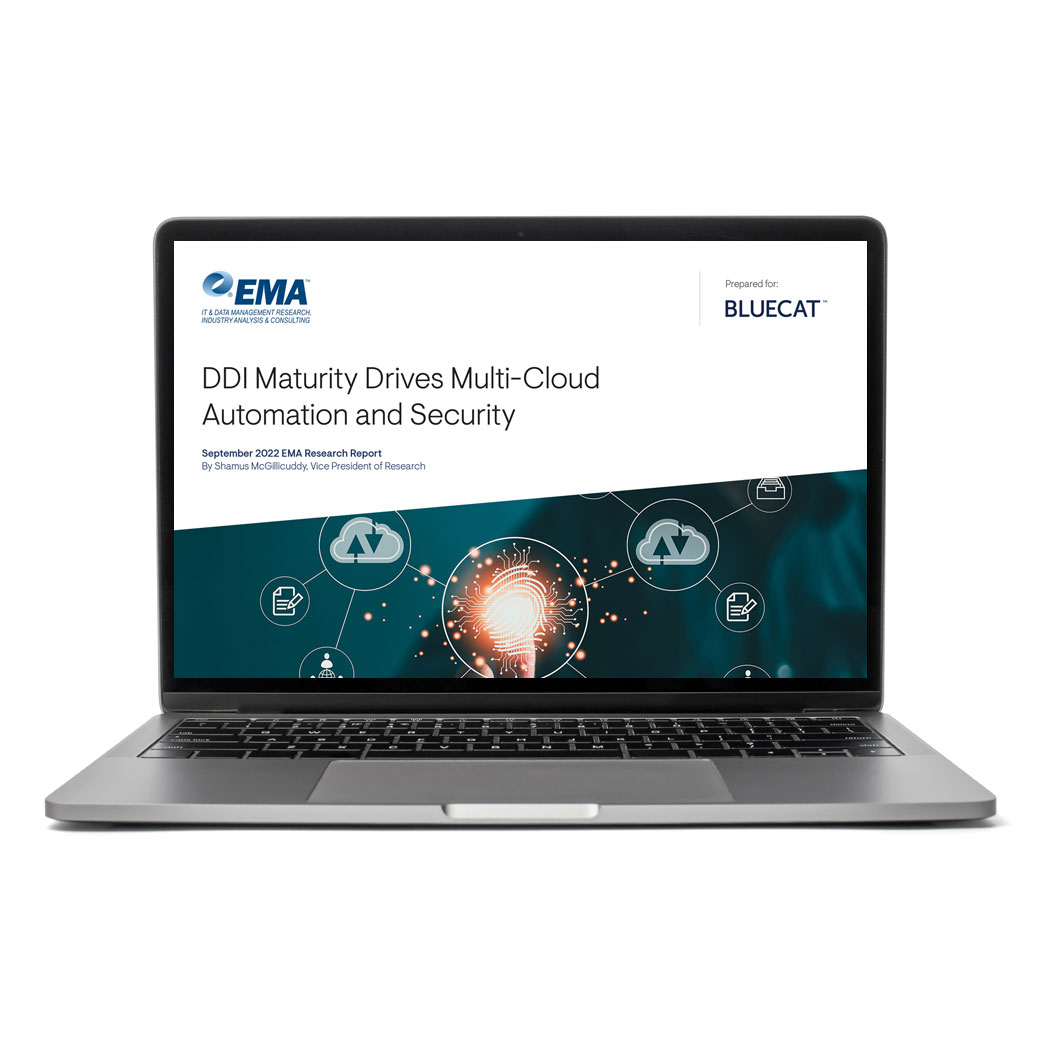DDI maturity: the key to multicloud automation and security
Two out of three enterprises realize the value of a full-stack DDI management platform. Is yours one of them?
Discover how DDI (DNS, DHCP, and IP address management) maturity is transforming enterprise networks in this insightful report by Enterprise Management Associates (EMA), commissioned by BlueCat. Drawing on a survey of 227 IT professionals from medium and large organizations across North America and the United Kingdom, the research delves into the key drivers and advantages of advancing DDI maturity—and shares practical best practices for implementing robust, integrated DDI solutions.
Some highlights:
-
64.8% of enterprises employ a full-stack DDI management platform with a fully integrated solution from a single vendor, the most mature approach to the technology.
-
61.2% of IT professionals reported that public cloud migration or transformation was the No. 1 factor behind their investment of time and/or money in DDI technology.
-
63.5% of research participants cited security requirements as their motivation for maturing their approach to DDI by investing in a commercial product.

What are the drivers of DDI maturity?
EMA’s research revealed the key drivers behind an investment of time and/or money in DDI technology.

cite public cloud migration or transformation as the reason they invested

cite a network/IT automation initiative as the reason they invested

cite a security incident as the reason they invested
Read the report and learn more about:
![]()
Critical DDI requirements
What are companies looking for in a DDI solution? The top priority is security functionality, with 59% of respondents stating features like DNS security protection or monitoring are crucial when evaluating DDI solutions.
![]()
Benefits of DDI maturity
More than 50% of organizations cited network complexity as one of their biggest challenges to DDI management. A mature approach to DDI is essential to overcoming this complexity and enabling your business for digital transformation.
![]()
How to succeed with DDI
A do-it-yourself approach simply won’t cut it in today’s digital world. IT organizations must strive for the most mature solution that they can adopt. A DDI management platform that controls DNS, DHCP, and IP address space across all networks is the best approach.